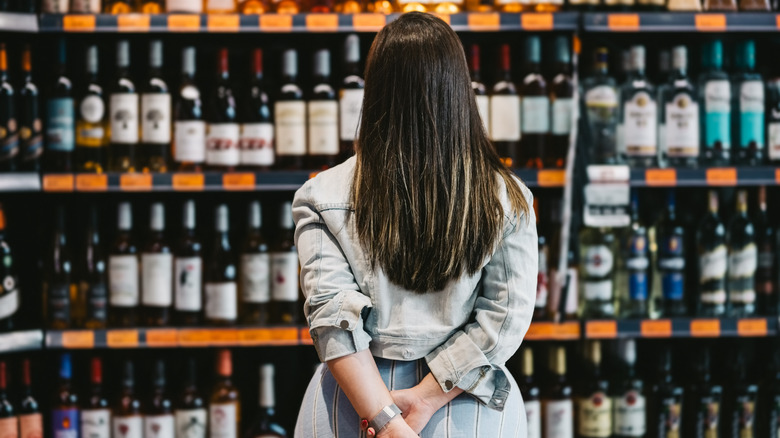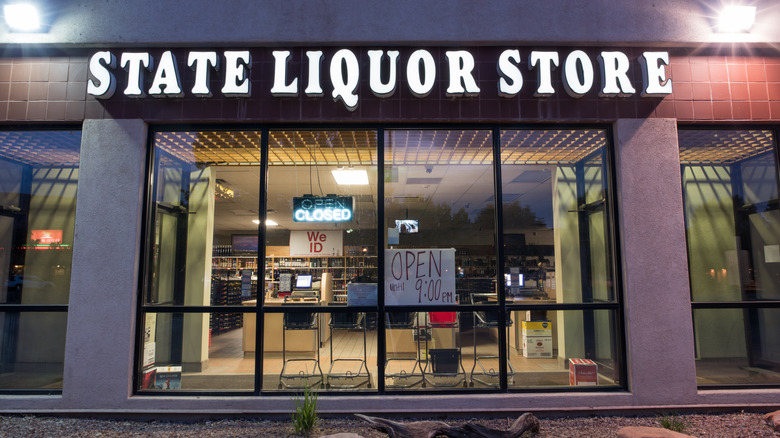Why You Won't Find Liquor Sold In Grocery Stores In Certain States
If you're visiting another state and want to have a fun night drinking, you might be surprised when you nothing to make the cocktail with at the local grocery store. If there's no liquor to be found, you're in what's called an Alcohol Beverage Control State. When prohibition ended in 1933, each state became responsible for deciding how alcohol would be sold and distributed within their respective territories. Not to be confused with dry counties, where the sale of alcohol is strictly prohibited, a control state is where the local government oversees the sale and distribution of specific alcoholic products. This mostly affects spirits.
There are 18 control states (technically 17, since one is a county), where the sale of alcohol takes place in state-run stores. These states are Alabama, Idaho, Iowa, Maine, Michigan, Mississippi, Montana, Montgomery County (Maryland), New Hampshire, North Carolina, Ohio, Oregon, Pennsylvania, Utah, Vermont, Virginia, West Virginia, and Wyoming. In each control state, there is a minimum price for each product, meaning there are limits on competition for pricing. Some of these states are stricter than others, with a few of them controlling the sale of all alcohol, including beer and wine. Before you get all in a huff, control states aren't necessarily a bad thing. These systems can provide benefits to both the consumer and the companies that make the beverage.
Other factors to consider about control states
Whether you're drinking casually or aiming to party hard, we can't pretend drinking is good for us. But in control states, the government can use the revenue from alcohol sales to provide useful resources for the community. For example, money from state-run stores can be used for things like education and infrastructure. Limiting the locations where one can purchase alcohol also helps mitigate alcohol abuse and lessens the number of people driving under the influence. Having specific, limited locations also increases the chance that alcohol will be purchased with intention rather than on an impulse (helpful for people in recovery) and also reduces the likelihood alcohol will be sold to minors.
Control states set minimum prices for alcohol and prohibit offering discounts (no promotions), so there's a chance prices will actually be higher in these areas. However, once a product is approved, it becomes available in all retail establishments (in theory, anyway). This is good for some producers, but leaves others brands locked out of stores altogether. If you're a fan of limited edition whiskeys or super-niche beers, you might disappointed at what's on offer at a state-run retailer. But while it may be confusing for visitors, people who actually live in control states are used to these slight differences and may even find open states to be the odd ones out.

